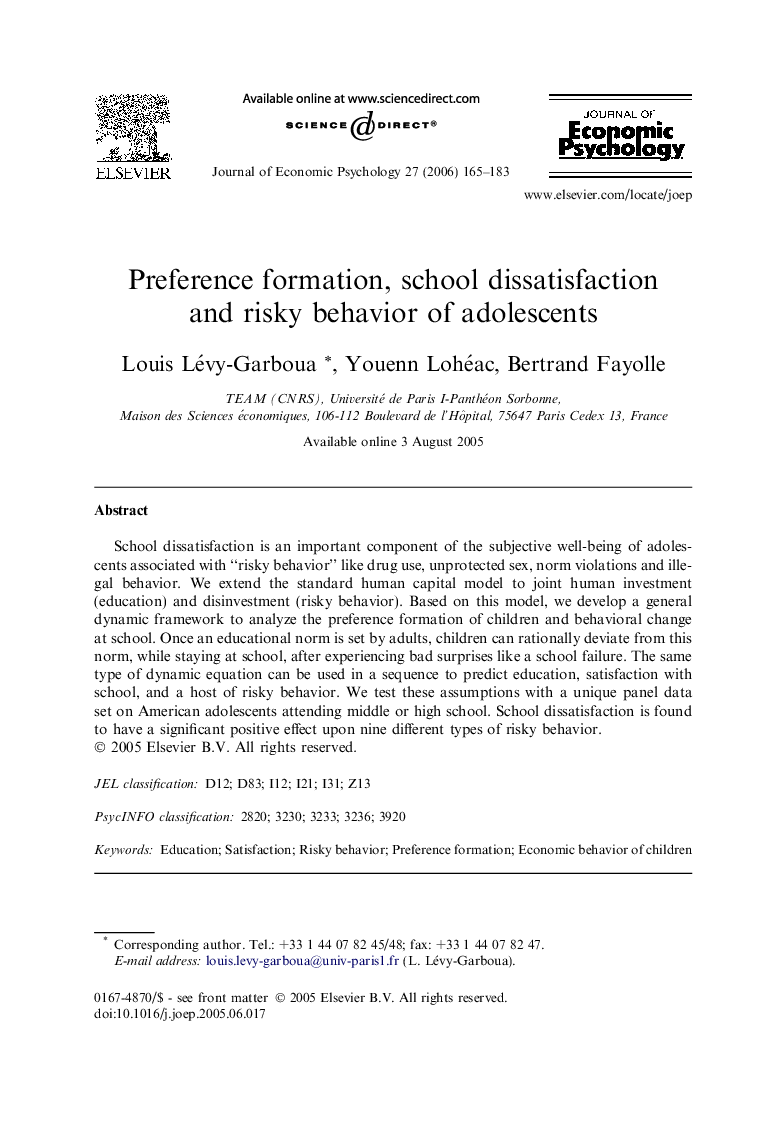| Article ID | Journal | Published Year | Pages | File Type |
|---|---|---|---|---|
| 885563 | Journal of Economic Psychology | 2006 | 19 Pages |
School dissatisfaction is an important component of the subjective well-being of adolescents associated with “risky behavior” like drug use, unprotected sex, norm violations and illegal behavior. We extend the standard human capital model to joint human investment (education) and disinvestment (risky behavior). Based on this model, we develop a general dynamic framework to analyze the preference formation of children and behavioral change at school. Once an educational norm is set by adults, children can rationally deviate from this norm, while staying at school, after experiencing bad surprises like a school failure. The same type of dynamic equation can be used in a sequence to predict education, satisfaction with school, and a host of risky behavior. We test these assumptions with a unique panel data set on American adolescents attending middle or high school. School dissatisfaction is found to have a significant positive effect upon nine different types of risky behavior.
